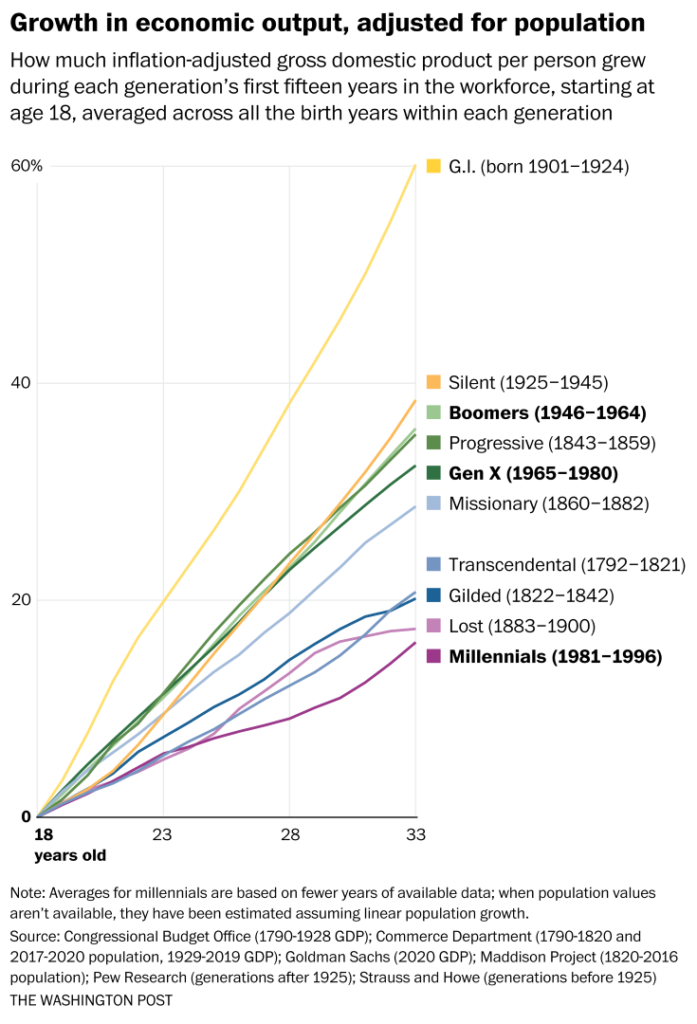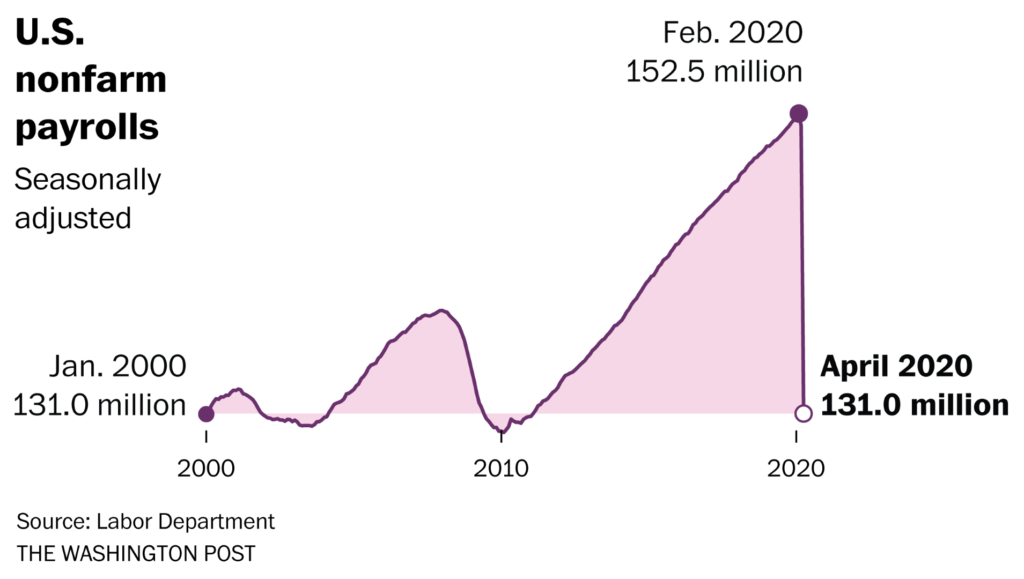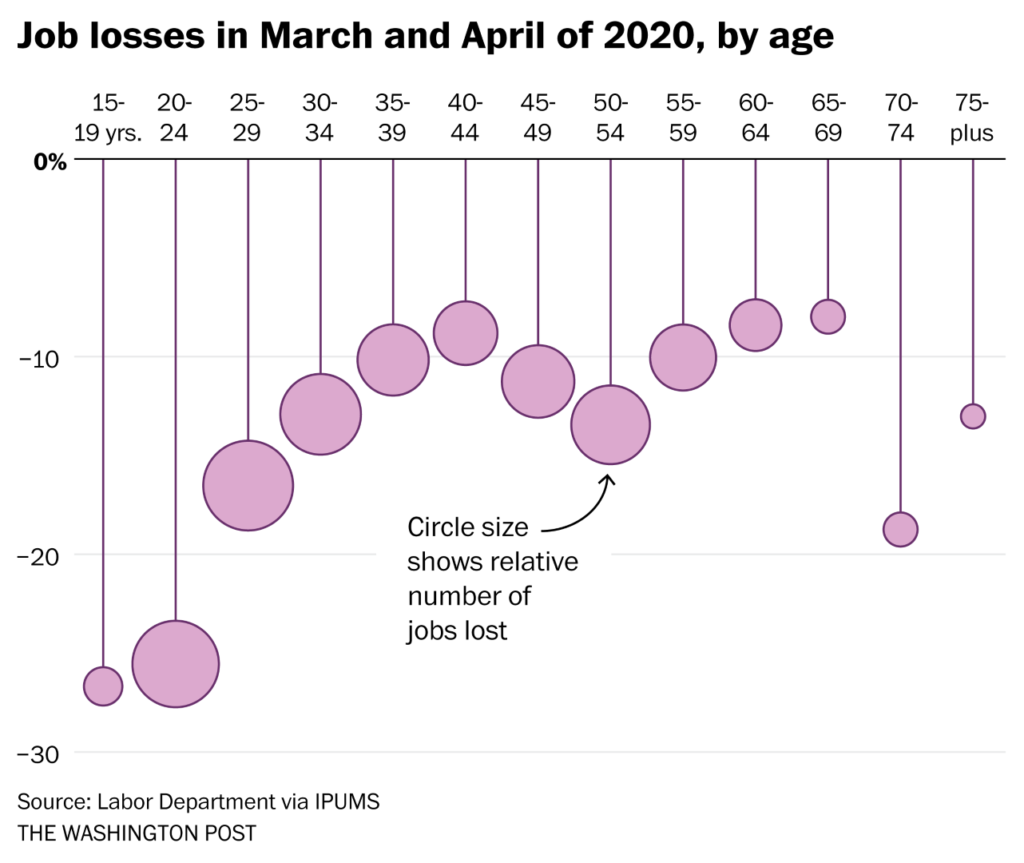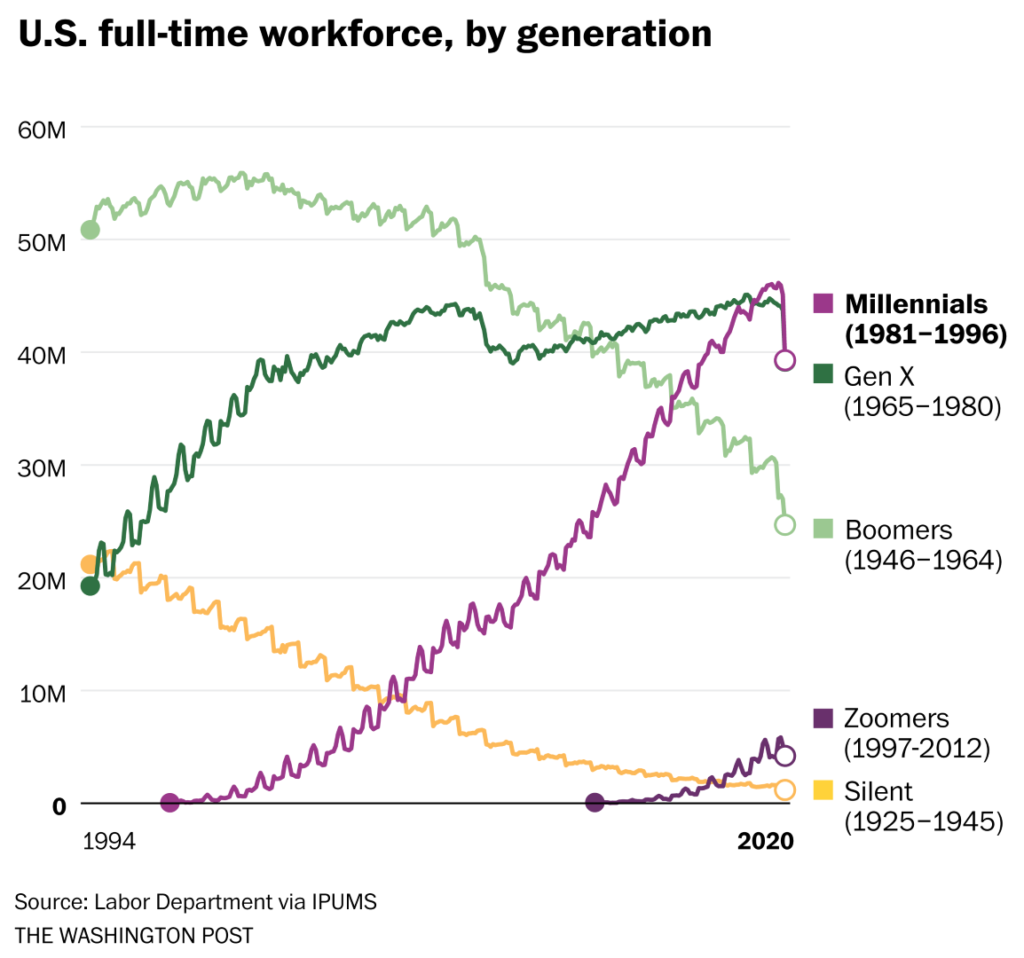Millennials are the unluckiest generation in U.S. history – “It’s not just that it’s a bad recession, and that it’s hitting young people more, but that it’s hitting people who have already been hit”

By Andrew Van Dam
27 March 2020
(The Washington Post) – After accounting for the present crisis, the average millennial has experienced slower economic growth since entering the workforce than any other generation in U.S. history.
Millennials will bear these economic scars over the rest of their lives, in the form of lower earnings, lower wealth and delayed milestones, such as homeownership.
The losses are particularly acute on the jobs front. One brutal month of the coronavirus crisis set the labor market back to the turn of the millennium. The last time there were about this many jobs (131 million) was January 2000.

For millennials who came of age back then, it’s as if all the plodding expansions and jobless recoveries of their namesake epoch evaporated in a matter of weeks.
The milestones will get even more dire in the next jobs report, but for now the economic regression back to Y2K is a fitting symbol for a generation that — more than any other — has been shaped by recession.
The losses aren’t merely symbolic. This recession has steamrolled younger workers just as millennials were entering their prime working years — the oldest millennials are nearing 40, while the youngest are in their mid-20s. Millennial employment plunged by 16 percent in March and April this year, our calculations show. That’s faster than either Gen X (12 percent) or the baby boomers (13 percent).

Proportionally, the even younger generation, known as zoomers, suffered worse than all of them. A third of their jobs were vaporized in two months in 2020. But Gen Z is only just entering the labor force — the oldest zoomers are in their early 20s — so their losses weren’t as large in absolute terms.
At the beginning of 2019, millennials had become the largest generation in the U.S. full-time workforce, surpassing Gen X. But the coronavirus crisis walloped millennials so disproportionately that they’re likely giving the top generational spot back to Gen X in the next month or two.

Gray Kimbrough, an economist with American University who we’ve previously and accurately branded a serial millennial myth debunker, points out that the oldest millennials, such as himself, lived through the 9/11 terrorist attacks and entered the labor market in the recession that hit around the same time. They spent their early years struggling to find work during a so-called jobless recovery, only to be hit by the Great Recession and another jobless recovery. And, of course, yet another recession.
“The story here is not just that it’s a bad recession, and that it’s hitting young people more, but that it’s hitting people who have already been hit,” Kimbrough said. [more]